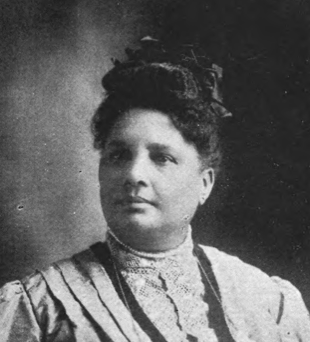As I was reviewing the readings for December 30th, the Feast of Frances-Joseph Gaudet (Educator and Prison Reformer) I was struck by how often God requires a human act before God’s power is loosed in the world.
In the story of the crossing of the Red Sea, God doesn’t act alone to part the waters for the Israelites and then bring the water down upon the Egyptians, God requires that Moses “Stretch out your hand over the sea” (Exodus 14:15 & 21) before God will act.
This is the case in many of the Old Testament stories where God is called upon. Before God acts, God requires that the agent perform a specific action.
The Gospel appointed for this feast is Matthew 25:35-46 where we have the tally of actions that are signifier of ‘the righteous’:
for I was hungry and you gave me food, I was thirsty and you gave me something to drink, I was a stranger and you welcomed me, I was naked and you gave me clothing, I was sick and you took care of me, I was in prison and you visited me.’ Then the righteous will answer him, ‘Lord, when was it that we saw you hungry and gave you food, or thirsty and gave you something to drink? And when was it that we saw you a stranger and welcomed you, or naked and gave you clothing? And when was it that we saw you sick or in prison and visited you?’ And the king will answer them, ‘Truly I tell you, just as you did it to one of the least of these who are members of my family, you did it to me.’
(Matthew 25:35-40)
It is the choice to do, to reach out, to act that sets the righteous apart in this situation and the failure to act condemns the others to eternal punishment.
I personally don’t worry to much about what will happen after death, and tend to think of heaven and hell as present among us now and brought into being by our own choices.
One of my favorite works of fiction is “Curse of Chalion” by Lois McMaster Bujold. It is the first in a fantasy series in a world of five gods. The gods can only act in the world through humans and saints of each god are really just people who are willing to open their souls to let the gods reach through them into the world.
Umegat [a saint] grinned, and desisted. “But have you really understood how powerless the gods are, when the lowest slave may exclude them from his heart? And if from his heart, then from the world as well, for the gods may not reach in except through living souls. If the gods could seize passage from anyone they wished, then men would be mere puppets. Only if they borrow or are given will from a willing creature, do they have a little channel through which to act. They can seep in through the minds of animals, sometimes, with effort. Plants… require much foresight. Or—” Umegat turned his cup upright again, and lifted the jug— “sometimes, a man may open himself to them, and let them pour through him into the world.” He filled his cup. “A saint is not a virtuous soul, but an empty one. He— or she— freely gives the gift of their will to their god. And in renouncing action, makes action possible.”
“If the gods are making this path for me, then where is my free will? No, it cannot be!”
“Ah.” Umegat brightened at this thorny theological point. “I have had another thought on such fates, that denies neither gods nor men. Perhaps, instead of controlling every step, the gods have started a hundred or a thousand Cazarils and Umegats down this road. And only those arrive who choose to.”
I find this idea of a god needing a willing vessel to be helpful when I think about God; and a good counter to the idea that “God let X-bad-thing happen.” God doesn’t let things happen. God asks us to invite him in to our lives.
Like Moses or Aaron– we must stretch out our hands in order to allow God to act in our world. If we fail to act, if we stand to the side, then there is little God can do for us or with us in our world.
So consider giving your hands and mind to God as we stand upon the cusp of a new year.
How is God calling you to act?
“Curse of Chalion” quotes from:
Bujold, Lois McMaster (2009-10-13). The Curse of Chalion (p. 199 &p. 228). HarperCollins. Kindle Edition.
Bible quotes from Bible Gateway
Kristin Fontaine is an itinerant Episcopalian, crafter, hobbyist, and unstoppable organizer of everything. Advent is her favorite season, but she thinks about the meaning of life and her relationship to God year-round. It all spills out in the essays she writes. She and her husband own Dailey Data Group, a statistical consulting company.

